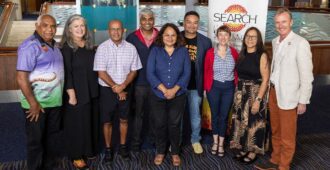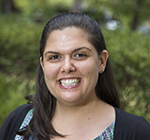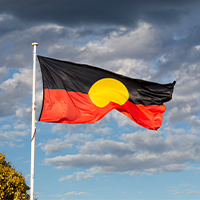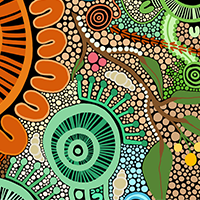Australia’s largest and longest-running study of the health and wellbeing of urban Aboriginal children is set to continue its successful work as a platform to help close the Indigenous health gap thanks to a Federal Government five-year funding commitment announced today.
The Study of Environment on Aboriginal Resilience and Child Health (SEARCH), a unique research partnership that involves 1600 urban Aboriginal children and their families in NSW, will benefit from more than $2.8 million in funding from the National Health and Medical Research Council.
“This new funding will allow SEARCH to continue to follow the children in the Study into adolescence and early adulthood as well as help Aboriginal community controlled health services to develop new programs to tackle major health issues such as chronic disease, asthma and mental illness,” said one of the Study’s lead researchers, Professor Emily Banks from the Australian National University.
SEARCH is a partnership between Aboriginal community controlled health services and researchers focused on addressing the knowledge gap around the health of urban Aboriginal kids and families and then using this information to drive real improvements in programs, services and health outcomes.
“The bulk of the health gap between Aboriginal and non-Aboriginal Australians has its origin in childhood and adolescence, but before SEARCH there was little information on the health and wellbeing of urban Aboriginal children and families,” said Ms Sandra Bailey, CEO of founding SEARCH partner the Aboriginal Health & Medical Research Council.
“Working on issues identified by Aboriginal health services as priorities, the SEARCH partners have not only been able to better understand the causes of ill-health and disease among urban Aboriginal children but Aboriginal community controlled health services have been able to use the information to deliver targeted services that are making a real difference to their communities.”
As an example, almost 800 urban Aboriginal children benefited from more than 7000 speech and language services and ear nose and throat surgical procedures after the SEARCH program identified the scale of the problem and developed a targeted intervention, the Hearing EAr health and Language Services program, which has received funding from the Federal and NSW Governments.
The CEO of a key SEARCH partner, Tharawal Aboriginal Corporation in Campbelltown, Mr Darryl Wright, said that the Study was having a real impact.
“SEARCH is effective because it is an active partnership between Aboriginal health services and researchers, supported by the Federal and NSW Governments, where health services like us set the research priorities and work collaboratively to develop interventions to address the problems identified,” said Mr Wright.
“I’ve seen the difference in my community at Tharawal, with kids getting the services they need so they don’t fall behind. As an Aboriginal medical service, it has also given us crucial data and information that can be used across our entire community.”
CEO of SEARCH partner the Sax Institute, Professor Sally Redman, said that the ongoing funding would allow SEARCH to develop into an even richer resource to drive real improvements in health outcomes and was a model that could be applied more broadly.
“This very welcome extension of the SEARCH program for another five years will let us collect data from infancy into adolescence/adulthood, providing even more opportunities to identify the factors influencing health and social wellbeing in the participating communities, and to then develop better targeted programs and services to address these issues.”
Mr Wright said: “We know now that the SEARCH partnership model is one that could be rolled out across the country, to give even more Aboriginal communities the information and decision making powers to address local health and social issues”.
Find out more
- Read more about the SEARCH partnership
- Contact the Sax Institute communications team




